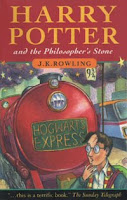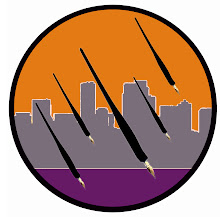I’ve been writing all my life. At the start, my cousin and I filled yellow legal pad after yellow legal pad with a rambling Dungeons and Dragons type Sword and Sorcery story; it went on and on and on. I hesitate to call it a novel, at this point, since it had no real over-arching plot, but hey… at least we were dedicated to it.
What I’m saying is: Writing has always been something that I do. It’s been natural and flowing and carefree, but ever since the four or so years ago when I decided to get serious about my favorite pastime and try to turn it into a career, the idea of a “suggested” word count length has hung over my head like a guillotine ready to drop. In fact, if I had to choose, the “suggested” word count would be the one thing I really worry about.
Everywhere you turn, the numbers shake out about the same:
90,000 to 100,000ish for a first time novel.
120,000 to 130,000ish, maybe, if it’s a genre book.
And what was my final draft before this last batch of edits?
177,823
Huge.
But here’s the problem: I’m just telling the story. Sure, I have since gone back and cut extra words and a few scenes that never really did what they were supposed and a few moments that repeat themselves, yadda, yadda, yadda, but still, even being generous, in the end, let’s guess that I’ll end up cutting about 25,000 words, give or take. That’s a ton, true, but once all of the dust and the hoop-la settles?
Final word count: 152,823
That’s still in the stratosphere as far as the commonly held belief goes. But what options do I have? I consider myself very open to suggestions, critiques, and edits, at least… I try to be. My end goal here is to put out the best product I can, and I recognize that you need outside eyes to accomplish this, but I’ll be honest with you…
After this initial 25,000 is gone, I do not believe there will be a significant number of words left to still cut out. And another 20,000? No way. Not without cutting the story too deep and sacrificing in a “bad” way, in my opinion. At that point, I think I’d be risking the book’s soul, doing more harm than good. It’s a fine line, I know, between being cautious and being obstinate, but really, I’m honestly trying to walk on the side of angels here and I don’t see how it can be done.
In fact, I’d go so far as to say that it can’t be done. Can Not.
Ballsy? Yes, but that’s me, baby.
Anyway, I’m paranoid enough about this, this goddamn word count thing (and don’t people say it so snooty to? Like it’s fucking gospel? “Oh, it has to be 100,000 words or no one will even look at it, blah, blah-blah…” Ass.) …anyway, I’m so conscious of it that it is consistently the one thing I do not do, despite the fact that the majority of agents request that the word count be included in queries, but fuck that. No way am I just showing my ass like that.
Why would I?
Agents and publishers are very busy, they’re swamped with requests from people who look, walk, talk, and act just like me, and they will straight out admit that the first round of cuts is based off of arbitrary first impressions and what is more arbitrary that the “preferred word count”? So yeah, no way am I going to just hand them a free “Denied” card like that. If they ask, I’ll tell them, but otherwise… Mum’s the word.
Besides, like all how to get published “rules” go, there’s a big old BUT attached at the end and that is, in a nutshell: “If it works, it works.”
And that gives me hope.
Case in point:
Joe Abercrombie.
Joe writes fantasy books, dark, bloody and brutal, they are epic tales of well drawn “real” characters in a fantastic world of magic and murder and massive armies. 100% good time. Loved ‘em. I devoured them. And here’s the kicker:
The Blade Itself? 190,000 words.
Before They Are Hanged? 195,000 words.
The Last Argument of Kings? 230,000.
Best Served Cold? 225,000.
Now sure, the later books will usually give an author more leeway word count-wise because they have established themselves, but still… Look at that! First book, 190,000 words, but it reads like a house on fire! Blistering, baby.
But how did that happen? How did that monster manuscript land on someone’s desk (and probably break it due to the weight) and then actually get read despite its size? Short answer? I don’t know. Right day, right time, right person, luck and magic (shrug). The point is, it did get read and it got published.
So here’s hoping…



